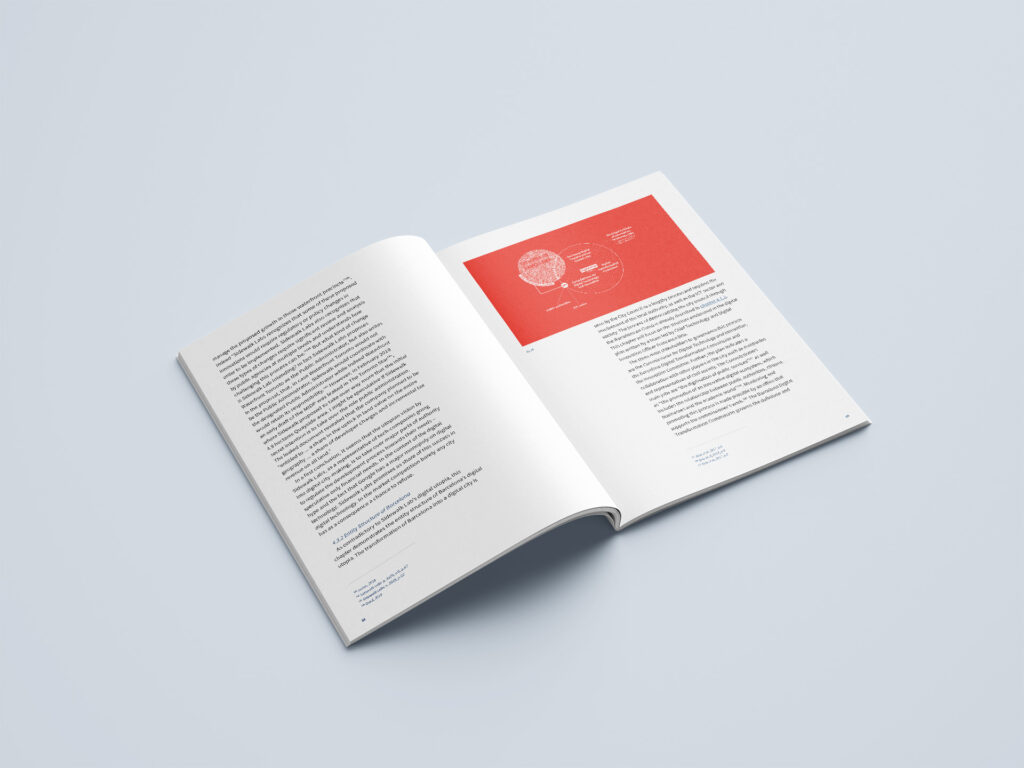Urban Utopia: disruptive Visions of the Digital City between Toronto and Barcelona
August 2019 | 2 Minuten Lesezeit
Utopian visions have been – especially in times of crises – a manifestation of aspirations, a useful tool for the critique of the existing, and a strategic option for progressive political forces. However, after the turn of the millennium, when tech companies started occupying the city as a market, urban utopia became the central means of staging needs in neoliberal Silicon Valley and thus a central force of late-capitalism to sell products.In contrast “a utopian method … provides a critical tool for exposing the limitations of current policy discourses about economic growth and ecological sustainability.”* But in connection to the digital city, utopia seems to become a tool of forecasting by techno-liberals.

This staging of techological desire feeds into the neoliberal ‘Californian Ideology’. Reflecting both the disciplines of market economics and the freedoms of hippie artisanship this ideology is only made possible through a universal belief in technological determinism. Linked to this ideological history, this research begins by deconstructing the beliefs, approaches and social values of the developers behind future urban visions in three case studies: Barcelona Digital City, Brainport Smart District and Toronto Waterfront.

See also: Dittrich, Moritz (2019) Who owns the city? In: The Matter of Architecture. Royal College of Art. London.
Sources
* Levitas, Ruth (2013) Utopia as method: the imaginary reconstruction of society. Palgrave Macmillan. Basingstoke, Hampshire, England (p.xi)